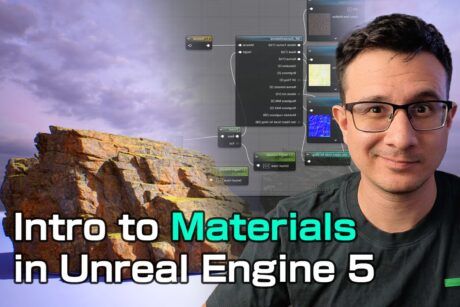Learn basic to advanced concepts in Python programming, write and run Python code, and get those Python programming jobs you've aimed for. Read more.
An online courses community for people interested in creating a meaningful life through learning things you care about.
Access all courses in our library for only $9/month with All Access Pass
Get Started with All Access PassBuy Only This CourseAbout This Course
Who this course is for:
- This course is aimed at the absolute beginner, you don’t need any coding experience at all.
What you’ll learn:
- Printing to the Screen
- String Manipulation
- Variables
- Data Types (lists, tuples, dictionaries and more)
- Simple Math
- Comparison Operators
- Assignment Operators
- Conditional If/Else Statements
- While Loops
- For Loops
- Fizzbuzz
- Functions
- Modules
- Classes
Requirements:
- No prior knowledge is required to take this course
- Course Objective: The goal of this course is to teach you the Python version 3 programming language. We’ll cover everything from the basics for absolute beginners to advanced topics.
- Starting Point: We’ll begin by helping you set up your computer with the necessary tools. You’ll download and install Python (the programming language) and Sublime Text Editor (a text editor used for coding), and the best part is, both are free.
- Empowerment: With these tools in place, you’ll have everything you need to write and run Python code on your computer. The skills you’ll gain will open up opportunities for you to pursue Python programming jobs.
- Python’s Significance: Python is highlighted as one of the best programming languages to learn. The course emphasizes that it’s not only a powerful language but also suggests that the learning process is made easy through the course content.
- Career Aspirations: The course hints at the potential for you to land Python programming jobs after completing it, indicating that it can help you achieve your dream career in programming.
In summary, the course aims to make learning Python accessible from the very basics to advanced concepts, emphasizing the ease of learning and the practical benefits it can bring to your career in programming.
About the instructor
John Elder is the founder and CEO of Codemy.com where he has taught over 150,000 people to code, as well as an Amazon #1 Best-Selling Author.
Explore more programming courses in Skill Success’ extensive course library!
Our Promise to You
By the end of this course, you will have learned Python programming.
10 Day Money Back Guarantee. If you are unsatisfied for any reason, simply contact us and we’ll give you a full refund. No questions asked.
Get started today and learn more about Python programming.
Course Curriculum
| Section 1 - Beginners Python | |||
| Introduction - Python 3 VS Python 2 - Which Should You Use? | 00:00:00 | ||
| Installing Python | 00:00:00 | ||
| First Program - Hello World! | 00:00:00 | ||
| Comments And Clearing The Screen | 00:00:00 | ||
| Variables | 00:00:00 | ||
| Introduction To Data Types | 00:00:00 | ||
| Strings | 00:00:00 | ||
| String Manipulation | 00:00:00 | ||
| Math With Python | 00:00:00 | ||
| Floats And Ints | 00:00:00 | ||
| Assignment Operators | 00:00:00 | ||
| Lists | 00:00:00 | ||
| Tuples | 00:00:00 | ||
| Dictionaries | 00:00:00 | ||
| Section 2 - Intermediate Python | |||
| Comparison Operators | 00:00:00 | ||
| Conditional Statements | 00:00:00 | ||
| Multiple Conditional Statements | 00:00:00 | ||
| While Loops | 00:00:00 | ||
| For Loops | 00:00:00 | ||
| Let's Build FizzBuzz! | 00:00:00 | ||
| Section 3 - Advanced Python | |||
| Functions | 00:00:00 | ||
| Functions: Part 2 | 00:00:00 | ||
| Modules | 00:00:00 | ||
| Introduction To Classes | 00:00:00 | ||
| Classes Part 1 | 00:00:00 | ||
| Classes Part 2 | 00:00:00 | ||
| Classes Part 3 | 00:00:00 | ||
| Course Conclusion | 00:00:00 | ||
About This Course
Who this course is for:
- This course is aimed at the absolute beginner, you don’t need any coding experience at all.
What you’ll learn:
- Printing to the Screen
- String Manipulation
- Variables
- Data Types (lists, tuples, dictionaries and more)
- Simple Math
- Comparison Operators
- Assignment Operators
- Conditional If/Else Statements
- While Loops
- For Loops
- Fizzbuzz
- Functions
- Modules
- Classes
Requirements:
- No prior knowledge is required to take this course
- Course Objective: The goal of this course is to teach you the Python version 3 programming language. We’ll cover everything from the basics for absolute beginners to advanced topics.
- Starting Point: We’ll begin by helping you set up your computer with the necessary tools. You’ll download and install Python (the programming language) and Sublime Text Editor (a text editor used for coding), and the best part is, both are free.
- Empowerment: With these tools in place, you’ll have everything you need to write and run Python code on your computer. The skills you’ll gain will open up opportunities for you to pursue Python programming jobs.
- Python’s Significance: Python is highlighted as one of the best programming languages to learn. The course emphasizes that it’s not only a powerful language but also suggests that the learning process is made easy through the course content.
- Career Aspirations: The course hints at the potential for you to land Python programming jobs after completing it, indicating that it can help you achieve your dream career in programming.
In summary, the course aims to make learning Python accessible from the very basics to advanced concepts, emphasizing the ease of learning and the practical benefits it can bring to your career in programming.
About the instructor
John Elder is the founder and CEO of Codemy.com where he has taught over 150,000 people to code, as well as an Amazon #1 Best-Selling Author.
Explore more programming courses in Skill Success’ extensive course library!
Our Promise to You
By the end of this course, you will have learned Python programming.
10 Day Money Back Guarantee. If you are unsatisfied for any reason, simply contact us and we’ll give you a full refund. No questions asked.
Get started today and learn more about Python programming.
Course Curriculum
| Section 1 - Beginners Python | |||
| Introduction - Python 3 VS Python 2 - Which Should You Use? | 00:00:00 | ||
| Installing Python | 00:00:00 | ||
| First Program - Hello World! | 00:00:00 | ||
| Comments And Clearing The Screen | 00:00:00 | ||
| Variables | 00:00:00 | ||
| Introduction To Data Types | 00:00:00 | ||
| Strings | 00:00:00 | ||
| String Manipulation | 00:00:00 | ||
| Math With Python | 00:00:00 | ||
| Floats And Ints | 00:00:00 | ||
| Assignment Operators | 00:00:00 | ||
| Lists | 00:00:00 | ||
| Tuples | 00:00:00 | ||
| Dictionaries | 00:00:00 | ||
| Section 2 - Intermediate Python | |||
| Comparison Operators | 00:00:00 | ||
| Conditional Statements | 00:00:00 | ||
| Multiple Conditional Statements | 00:00:00 | ||
| While Loops | 00:00:00 | ||
| For Loops | 00:00:00 | ||
| Let's Build FizzBuzz! | 00:00:00 | ||
| Section 3 - Advanced Python | |||
| Functions | 00:00:00 | ||
| Functions: Part 2 | 00:00:00 | ||
| Modules | 00:00:00 | ||
| Introduction To Classes | 00:00:00 | ||
| Classes Part 1 | 00:00:00 | ||
| Classes Part 2 | 00:00:00 | ||
| Classes Part 3 | 00:00:00 | ||
| Course Conclusion | 00:00:00 | ||





Great course
This course gave me a lot of information in less time then other courses. It’s the same material in less time so you learn more valuable information so you can put it right to work.
Awesome explanation
I actually understand python better after this amazing course
Amazing Class
I absolutely loved the class. As a complete beginner, I was a little nervous about taking this class. But the teacher makes it so each follows along. The class was very informative and it was fun to see the progress in such a short time. I will definitely be recommending this class.
Good Teacher
Very quick and easy to understand
Great intro to Python
This course is a great intro to Python taught by John Elder. He explains concepts well and the overall structure of the course is very good.